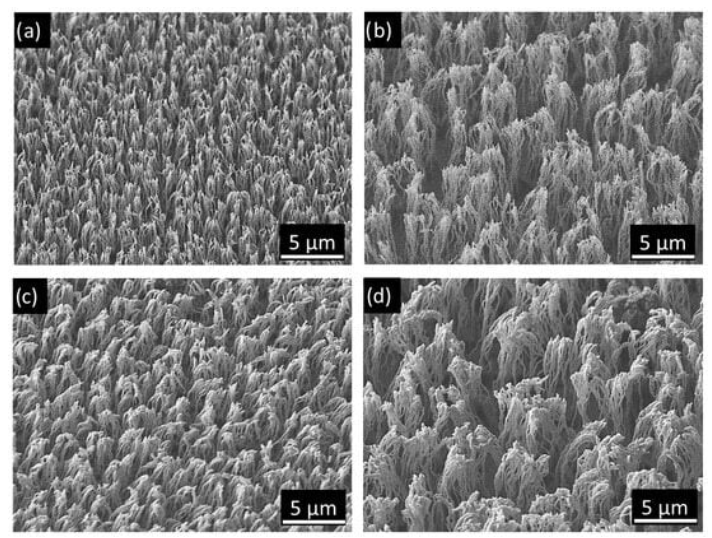Carbon-based materials have emerged as promising biomaterials due to their biocompatibility and inherent antibacterial properties. Carbyne, a unique allotrope of carbon, characterized by sp-hybridized carbons forming alternating single and triple bonds, exhibits exceptional toughness. Herein, we explore the potential of carbyne-enriched plasma coatings for antibacterial applications in conjunction with micro- and nano-textured polymeric surfaces. We investigate and characterize carbyne-enriched plasma coatings onto superhydrophilic or superhydrophobic poly (methyl methacrylate) (PMMA) plasma micro-nanotextured surfaces. Our analysis evaluates the wetting properties and durability of these surfaces, particularly in liquid immersion conditions. The integration of carbyne-enriched plasma coatings serves a dual purpose: it enhances the chemical bactericidal action and protects surface micro-nanostructures from deformation due to capillary forces thanks to the material’s innate toughness. The results show that the micro-nanotextured and carbyne-enriched coated PMMA surfaces exhibit a significant bactericidal activity as expressed by a bactericidal index of approximately 50%, owing to the combined effect of both the surface topography and the plasma-deposited carbyne coating.

Carbon-based materials have emerged as promising biomaterials due to their biocompatibility and inherent antibacterial properties. Carbyne, a unique allotrope of carbon, characterized by sp-hybridized carbons forming alternating single and triple bonds, exhibits exceptional toughness. Herein, we explore the potential of carbyne-enriched plasma coatings for antibacterial applications in conjunction with micro- and nano-textured polymeric surfaces. We investigate and characterize carbyne-enriched plasma coatings onto superhydrophilic or superhydrophobic poly (methyl methacrylate) (PMMA) plasma micro-nanotextured surfaces. Our analysis evaluates the wetting properties and durability of these surfaces, particularly in liquid immersion conditions. The integration of carbyne-enriched plasma coatings serves a dual purpose: it enhances the chemical bactericidal action and protects surface micro-nanostructures from deformation due to capillary forces thanks to the material’s innate toughness. The results show that the micro-nanotextured and carbyne-enriched coated PMMA surfaces exhibit a significant bactericidal activity as expressed by a bactericidal index of approximately 50%, owing to the combined effect of both the surface topography and the plasma-deposited carbyne coating.
